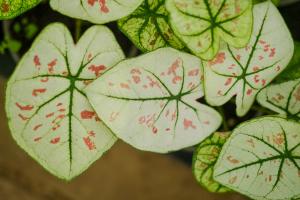Do Tomatoes Have to Be Planted Every Year?
Tomatoes are a beloved crop in the home garden, and for good reason. They are versatile in the kitchen and can be enjoyed fresh in salads, cooked into sauces, and canned for later use. But with their popularity comes the question of whether they need to be replanted every year. The short answer is no, but there are a few things to consider when deciding whether to plant tomatoes annually or not.
Perennial or Annual?
Tomatoes are technically a perennial plant, meaning they have the ability to live for more than two years. However, they are typically grown as annuals because they are sensitive to frost and cannot withstand cold temperatures. Additionally, many gardeners find that the yield from an annual tomato plant is higher compared to a perennial plant.
The Case for Replanting Every Year
One reason gardeners often choose to replant tomatoes every year is to prevent diseases from accumulating in the soil. Tomatoes are susceptible to a variety of fungal and bacterial diseases, such as Verticillium Wilt and Fusarium Wilt. These diseases can linger in the soil, infecting future plants and reducing overall yield. By rotating tomato plants each year, gardeners can help prevent a buildup of these diseases.
Additionally, replanting allows gardeners to choose different tomato varieties each year, which can be helpful in avoiding disease or pest problems. Certain tomato varieties are more susceptible to diseases or pests than others, so switching it up every year can help prevent problems before they begin.
The Case for Growing Perennial Tomato Plants
While replanting tomatoes each year can be beneficial, there are also advantages to growing perennial tomato plants. For one, they can save time and money since gardeners do not need to purchase and plant new seedlings every season. Additionally, they can be useful for gardeners who have limited space, as they can be trained to grow on trellises or in containers, taking up less room than traditional garden beds.
Perennial tomato plants can also yield fruit earlier in the season than annual plants, since they do not need to establish new roots each year. This can be particularly beneficial in areas with short growing seasons, where getting an early start on the growing season is essential.
Tips for Growing Perennial Tomato Plants
If you decide to grow perennial tomatoes, there are a few tips to keep in mind. First, be sure to choose a variety that is well-suited for your climate, as some tomato varieties are better adapted to hot or cold weather. Additionally, be sure to prune the plants regularly to keep them neat and tidy, and consider applying a layer of mulch around the base of the plants to help retain moisture and regulate soil temperature.
It is also important to note that perennial tomato plants may become less productive over time, especially if they are not given adequate care. Be sure to monitor the plants for signs of disease or nutrient deficiencies, and provide them with proper watering and fertilization.
Conclusion
While tomatoes do not have to be planted every year, the decision to replant or grow perennial plants depends on a variety of factors. Gardeners must weigh the benefits of crop rotation and disease prevention with the convenience and cost-effectiveness of perennial plants. Ultimately, both options can be successful with proper care and attention.

 how many times do yo...
how many times do yo... how many planted tre...
how many planted tre... how many pine trees ...
how many pine trees ... how many pecan trees...
how many pecan trees... how many plants comp...
how many plants comp... how many plants can ...
how many plants can ... how many plants and ...
how many plants and ... how many pepper plan...
how many pepper plan...





























